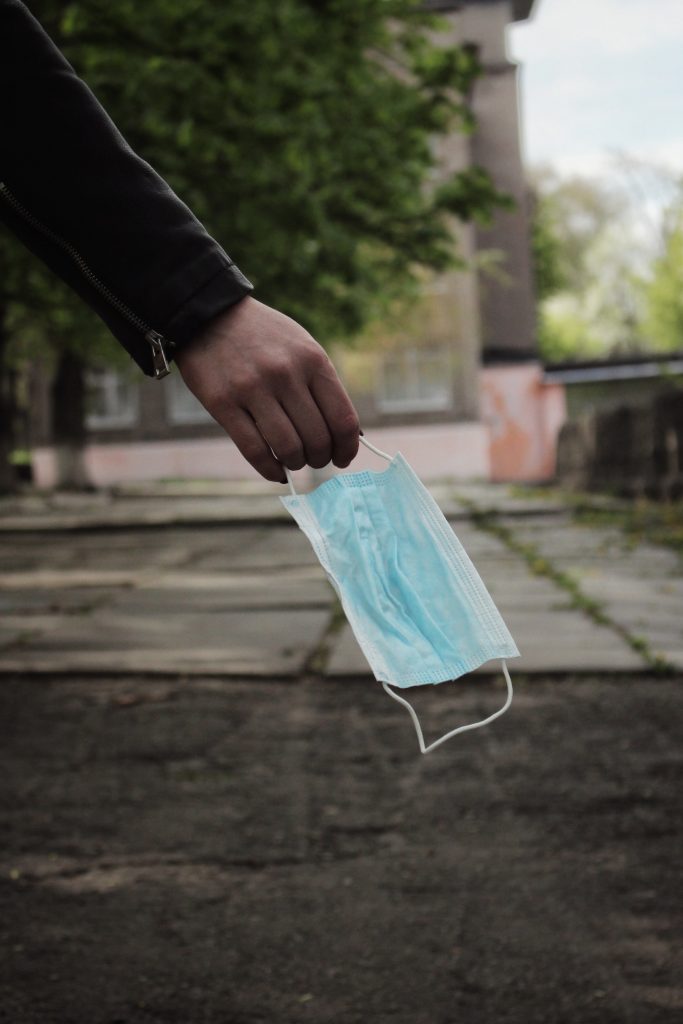We got used to living with masks by now – whether they are surgical, ffp2 or ffp3 – and taking other necessary precautions to avoid being infected with Covid-19 like latex gloves, disinfectants and hand sanitizers we find on the market.

Most of the effectiveness of protective devices is related to the fact they are disposable, but their disposability is turning out to be a huge environmental disaster.
Unfortunately, because of people’s lack of civic sense masks and gloves are often left in parks, streets and shorelines instead of in appropriate rubbish dumpsters.
According to the Environmental Science and Technology journal, since the beginning of the pandemic we got rid of 194 billion protective devices: 129 billion masks and 65 billion latex gloves per month. The main issue is that masks contain plastic materials such as polypropylene which decomposes in about 450 years.
Plastic waste that ends up in the ocean presents an additional danger for marine species that can mistake this garbage for food and be killed.
These aspects are underlined and supported by some of the 17 objectives expressed by the 2030 Agenda for Sustainable Development, the action program for people, the planet and prosperity, signed in September 2015 by the governments of 193 UN member countries.

Exercise: the topic just discussed which objective (s) can be linked to? Discuss with your classmates.
